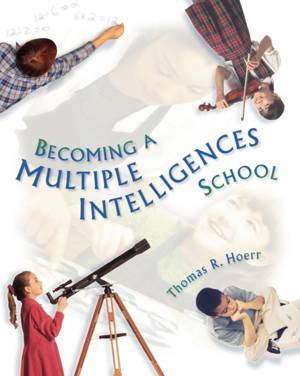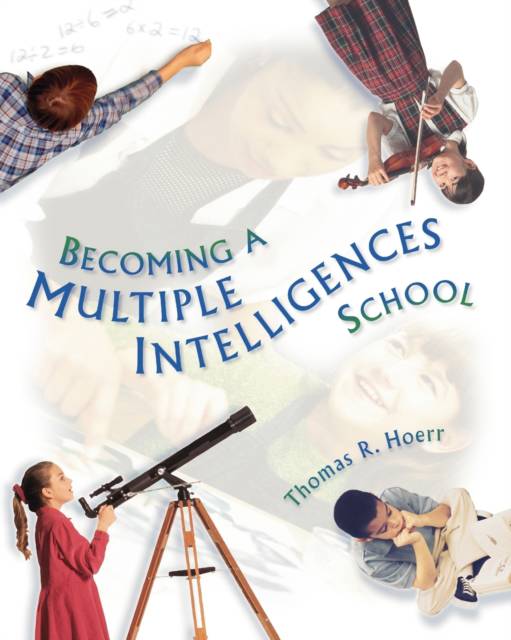
- Retrait gratuit dans votre magasin Club
- 7.000.000 titres dans notre catalogue
- Payer en toute sécurité
- Toujours un magasin près de chez vous
- Retrait gratuit dans votre magasin Club
- 7.000.0000 titres dans notre catalogue
- Payer en toute sécurité
- Toujours un magasin près de chez vous
Becoming a Multiple Intelligences School
Thomas R Hoerr, Noreen Carol Rolheiser-Bennett
Livre broché | Anglais
40,95 €
+ 81 points
Description
From the Foreword by Howard Gardner: In this invaluable book, Tom Hoerr relates a decade's worth of MI experiences at St. Louis' New City School. We learn about the staff's initial exposure to MI theory, the many activities (some more successful than others) that were undertaken by faculty and staff in teaching, curriculum, adult development, and assessment; the challenges that the leader faces in attempting to bring about significant and lasting change. Especially compelling are the continuing efforts to develop the personal intelligences during a period when issues of diversity, multiculturalism, and standards loom so large. Hoerr underscores the centrality of collegiality, the problems posed by transient students and faculty, the complementary role played by public exhibitions and standardized test scores, the role of friends in determining the activities (and intelligences) favored by children, the delicate line between support and challenge that the leader must walk, the tension between excellence and perfection. I value the concrete examples, as well as the ties to important conceptual work, such as that undertaken by Roland Barth on collegiality, Peter Salovey on emotional intelligence, and Peter Senge on the learning organization. Achieving excellence has always been a process. Hoerr makes it abundantly clear that the effort to use MI ideas effectively must remain on the agenda. Still, I can testify that, over a 10-year period, clear, palpable, impressive progress can be made. We can improve schools significantly, but only if we take the long view and do not settle for patchwork fixes. Thomas R. Hoerr is director of the New City School in St. Louis, Missouri. Under Hoerr's leadership, the faculty began implementing the theory of multiple intelligences in 1988.
Spécifications
Parties prenantes
- Auteur(s) :
- Editeur:
Contenu
- Nombre de pages :
- 130
- Langue:
- Anglais
Caractéristiques
- EAN:
- 9780871203656
- Date de parution :
- 15-02-00
- Format:
- Livre broché
- Format numérique:
- Trade paperback (VS)
- Dimensions :
- 201 mm x 252 mm
- Poids :
- 258 g

Les avis
Nous publions uniquement les avis qui respectent les conditions requises. Consultez nos conditions pour les avis.






